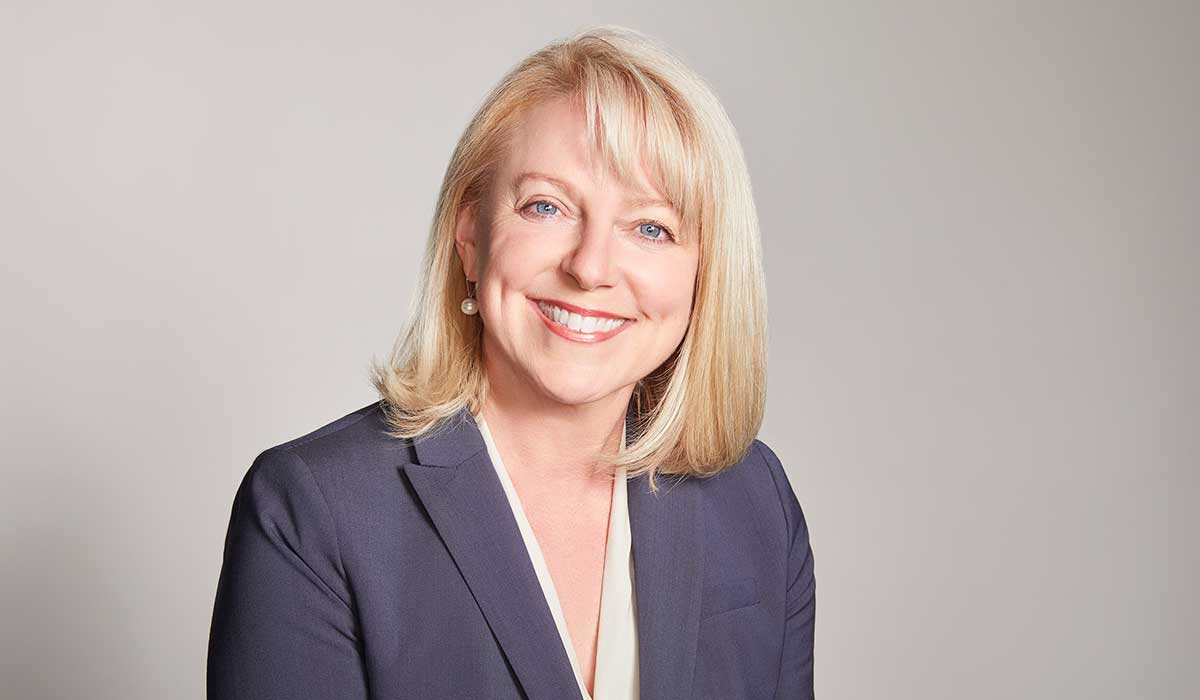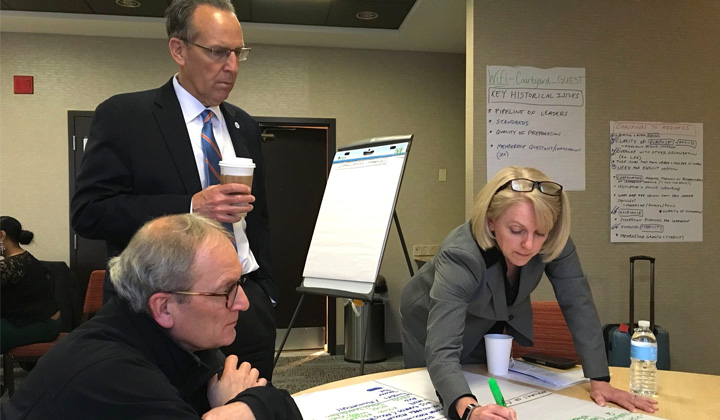A Message from Dean Michelle D. Young, LMU School of Education

The LMU School of Education (SOE) is about preparing professionals to work in the field of education and human development, and my vision is to grow from this strong foundation. Historically, the School of Education has had a strong social justice emphasis, and it has an excellent reputation in the field. We’re going to lean into these strengths and move beyond general social justice by embracing the notion of diversity, equity, and inclusion through evidenced-based examples in the partner schools and community organizations.
One of the significant funding priorities for the school is establishing a Center for Trauma Informed Education. The purpose of the center is to assist schools in supporting the social and emotional well-being of all students and adults who learn and work within the school. It goes without saying, but this past year has brought to the surface just how overwhelmed a lot of children and adults are from the pandemic. Not just the isolation, but then when you layer onto that the unknowns regarding death, housing and food insecurities, parents losing their jobs, the racial injustice that has been palpable and brought to the surface over and over again, and political uprisings — all these things are adding to the stress that a lot of kids are feeling, a lot of their teachers are feeling. This can undermine the learning process.
The Center for Trauma Informed Education and Care will do four things: 1) provide direct clinical services, counseling and school psychology services to schools and individual students and teachers; 2) support the School of Education in threading socio-emotional and trauma informed care in all of our programming so that our teachers, leaders, counselors, and school psychologists are ready to support kids once they go back to school; 3) provide professional development and curriculum support that can be used within the classroom with students; 4) and finally, conduct research. We want to know whether or not we’re having intended impact and how we can then scale that impact to other schools should it be as positive as we hope it will be.

Another important area of work for the School of Education is with Catholic schools. Within SOE’s Center for Catholic Education we have been developing a plan in collaboration with our partners to reimagine Catholic education through innovation (Catholic imagination), praxis (reflection and action), and accompaniment (journey with) to foreground equity, spirituality, innovation, and sustainability. Our plan, which focuses on the development of the whole child, seeks to develop a new normal for Catholic education with concentrated efforts in four key areas: 1) academic excellence; 2) faith, culture and community; 3) leadership and governance; and 4) research. Our educator preparation programs, including our signature teacher preparation programs (CAST and PLACE Corps) and leadership development programs are focused on building an educator workforce for the future of Catholic education. For example, because a Catholic school principal/president is essentially a mini-CEO, the types of educational experiences that we’re providing to aspiring Catholic school leaders are about being innovative, entrepreneurial, faith-based, student and community advocates as well as conscientious stewards of resources, which includes fundraising. We have created a new set of curricula that will be offered starting this fall nationally, to increase the scope of our ability to reach future Catholic school leaders. In addition, we are focusing on the unique challenges faced by urban and rural schools. Rural schools, in particular, have a tough time recruiting teachers and leaders to their communities. We are working with rural diocese to “grow their own” educational leaders.
Our iDEAL Institute (Innovation in Digital Education and Leadership) is also rethinking Catholic education in terms of how and when learning is provided. We were supporting blended learning and individualized learning enhanced by technology prior to the pandemic. This enabled SOE to support our partners in the field in substantive ways when the pandemic hit, because we already had effective and research-based practices available for partners. As we think about the future of education, blended learning offers a powerful strategy for individualizing and accelerating student learning. There will be face-to-face experiences with blended opportunities that are enhanced by technology. Within our SOE, iDEAL staff members are supporting faculty in the use of simulations that offer aspiring teachers, leaders and counselors the opportunity to master essential professional skills through cycles of practice, feedback and refinement. The iDEAL Institute is poised to extend its reach beyond the community it currently serves.
Diversity, Equity, and Inclusion (DEI) is a major priority for the School of Education and our work with our partner schools and school systems. For example, we are working with the Diversity in Leadership Institute to launch our first leaders of color pipeline and we are finalizing a memorandum of understanding with the Los Angeles Unified School District (LAUSD) to develop a similar track for teachers of color. These are the first of many such efforts to diversify the educator pipeline. Similarly, we are offering a leadership development academy to serve LAUSD principals focused on building culturally responsive leadership practice. Research demonstrates the importance of these kinds of initiatives, particularly for the success of students of color. This work also ties into SOE and LMU’s broader commitment to assess and address our practices to ensure that our students and faculty have the capacity to engage in culturally responsive practice.
Looking ahead 10 years, it would be wonderful to have a named SOE through a significant endowment opportunity allowing us to solidify the work we have been doing, and extend the impact of our contributions throughout, and beyond, Los Angeles and California. An endowment would ensure SOE has the resources to build on and extend our transformative programs and successful center initiatives, to establish endowed professorships and directors for SOE centers, and to increase the level of support for our students. SOE students are choosing to work in a noble and essential, though underpaid, profession. It is crucial that we do all that we can to provide all prospective students with the opportunity to receive a great education without incurring a lot of debt. The SOE offers powerful, research-informed learning opportunities for educators and mental health professionals. Students join our programs eager to make a difference and they leave our SOE with the knowledge and capacity to do so. What starts in the Loyola Marymount School of Education builds a better future for K-12 students and schools.
For more information about supporting the LMU School of Education, contact Kristin Love at 310.338.6554. To support the LMU School of Education, visit here.